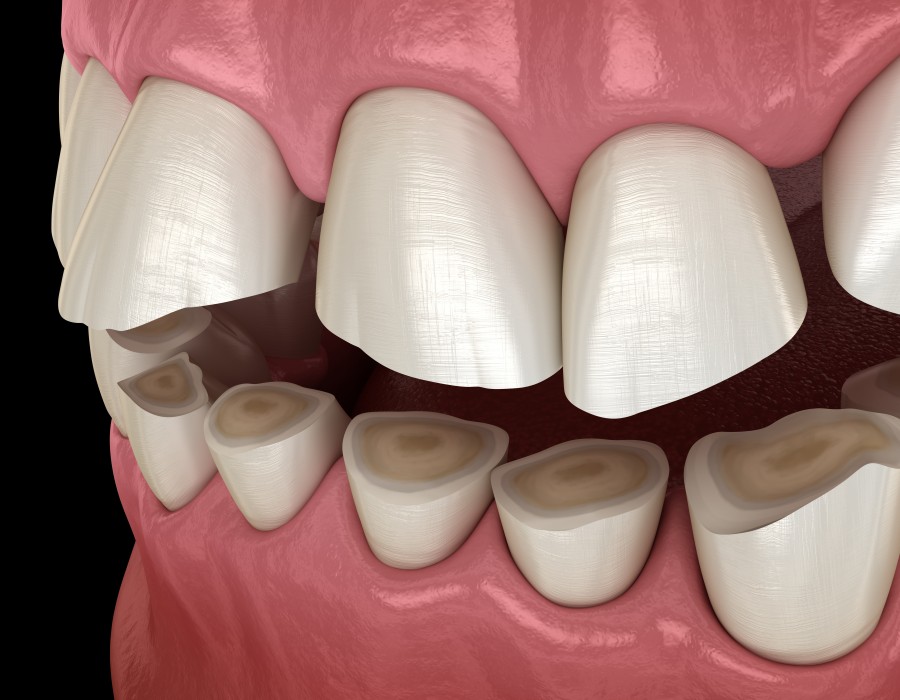Teeth grinding at night, also known as sleep bruxism, can lead to painful jaws, worn-down teeth, and disrupted sleep. If you're asking yourself, how can I stop Teeth Grinding Treatment at night you're not alone. Millions struggle with this involuntary habit, but there are practical, proven strategies to help you reduce or even eliminate the issue entirely.
Understand the Root Causes:
To stop grinding your teeth, it’s essential to understand what might be causing it. Often, it’s linked to physical, psychological, or lifestyle factors.
- Stress and anxiety are leading contributors to bruxism
- Sleep disorders, such as sleep apnea, can intensify nighttime grinding
- Misaligned teeth or bite issues may cause your jaw to clench during rest
- Excess caffeine or alcohol intake before bed can overstimulate your system
- Medications, especially antidepressants, can have grinding as a side effect
By identifying and addressing these underlying causes, you can create a targeted plan to stop grinding.
Try Mouthguards or Splints:
One of the most effective tools for stopping nighttime grinding is a mouthguard. These devices don’t cure bruxism but can protect your teeth and reduce jaw tension.
- Custom-fitted mouthguards from your dentist offer the best fit and comfort
- Over-the-counter options are more affordable but may be less effective
- Night splints can reposition your jaw to reduce muscle activity
- Soft guards may be ideal for light grinders or those with sensitive teeth
Wearing a nightguard consistently can significantly decrease the damage caused by grinding.
Reduce Stress Before Bed:
Since stress is one of the primary triggers of bruxism, creating a relaxing bedtime routine can make a big difference.
- Practice mindfulness or meditation for 10 minutes before sleep
- Try deep breathing exercises to calm your nervous system
- Avoid screens for at least 30 minutes before bed to limit stimulation
- Listen to calming music or ambient soundscapes to ease tension
- Consider journaling to release mental clutter and anxious thoughts
By consistently winding down, you help your brain and body prepare for restful, tension-free sleep.
Adjust Your Sleep Habits:
Improving your sleep hygiene can help reduce the frequency and intensity of teeth grinding episodes.
- Go to bed and wake up at the same time every day, even on weekends
- Sleep on your back to reduce pressure on your jaw
- Keep your bedroom cool and dark to promote deeper sleep
- Avoid heavy meals and stimulants within two hours of bedtime
- Stay hydrated, as dehydration can sometimes worsen grinding
Better sleep equals less stress on the body, which in turn can reduce nighttime jaw clenching.
Consider Professional Therapy:
If lifestyle changes don’t resolve your teeth grinding, it might be time to seek professional help. A healthcare provider can guide you through more targeted interventions.
- Cognitive behavioral therapy (CBT) can help with anxiety or compulsive behavior
- Physical therapy can improve jaw alignment and reduce muscle tension
- Biofeedback techniques train your body to relax jaw muscles unconsciously
- Dental corrections may be recommended for severe misalignment
- Prescription medications can sometimes help, though they're used sparingly
Talking to a professional ensures you're not overlooking any medical or structural issues contributing to your grinding.
Be Consistent and Patient:
Breaking the habit of Teeth Grinding at night doesn’t happen overnight, but consistency is key. Combining techniques usually delivers the best results.
- Track your symptoms in a sleep journal to identify patterns
- Use relaxation techniques daily, not just when stressed
- Follow your dentist's recommendations for oral appliances
- Celebrate small improvements, such as reduced soreness or better sleep
- Keep up regular dental visits to monitor your progress
With persistence and the right strategies, you can significantly reduce or even eliminate nighttime teeth grinding—and enjoy a healthier, pain-free smile.





Comments